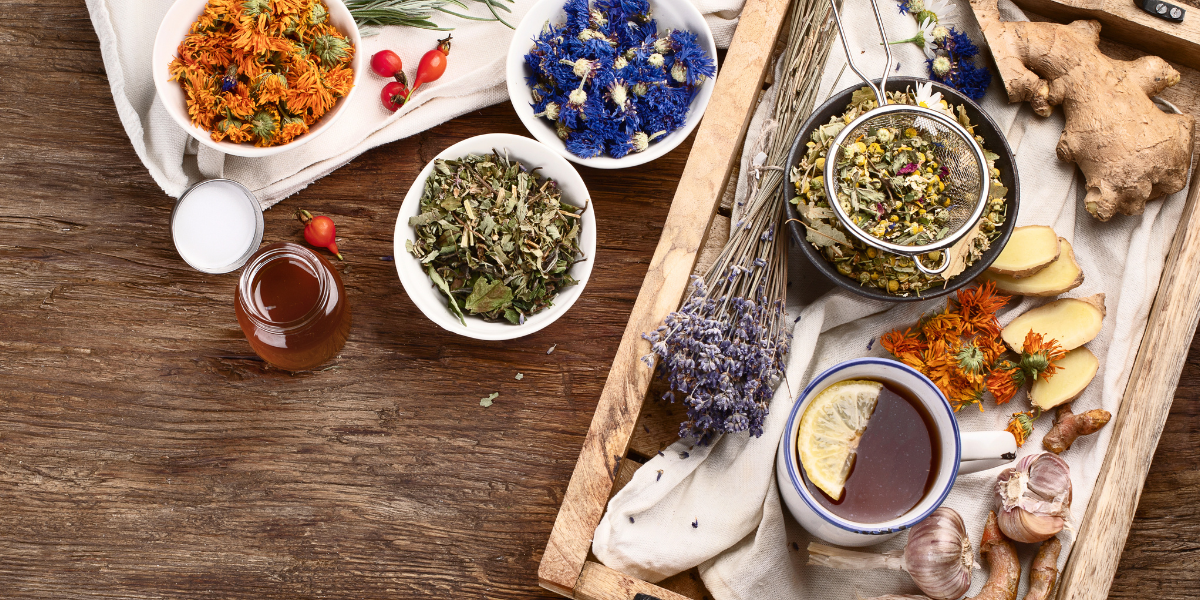Introduction to Herbal Remedies: Embracing Nature’s Wisdom
Embarking on the exploration of herbal healing is an invitation to unlock the age-old wisdom embedded in the botanical world. This introductory point involves delving into the historical and cultural roots of herbal remedies, understanding their significance as time-honored sources of natural healing. Throughout history, diverse cultures have turned to plants for their medicinal properties, recognizing the profound synergy between humans and the botanical realm. From ancient Ayurvedic traditions to Native American herbal wisdom, each culture has cultivated a unique relationship with plants for holistic well-being. By unraveling the historical tapestry of herbal healing, individuals gain a deeper appreciation for the interconnectedness between nature and human health, setting the stage for a journey into the vast and transformative world of herbal remedies.
Table of Contents
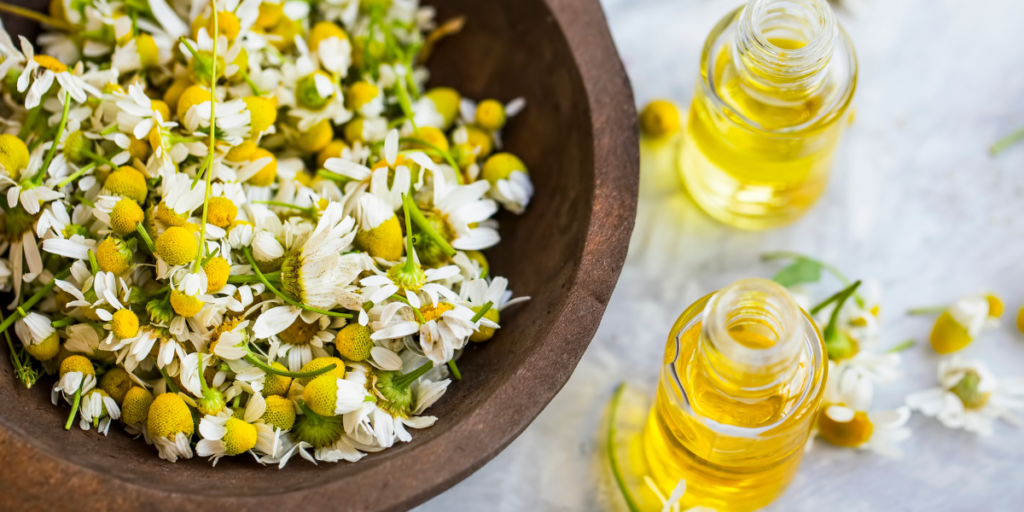
Herbs for Stress Relief: Nature’s Tranquilizers
Delving into herbs renowned for their stress-relieving properties opens a gateway to nature’s tranquilizers, offering solace to the weary mind. Chamomile, with its mild sedative effects, has been cherished for centuries as a calming herb, soothing nerves and promoting relaxation. Lavender, with its aromatic essence, possesses anxiolytic properties, reducing stress and inducing a sense of calm. Adaptogenic herbs like ashwagandha and rhodiola, revered in traditional medicine, help the body adapt to stressors, promoting resilience and balance. By exploring these herbal allies, individuals can harness the natural solutions provided by the plant kingdom to alleviate stress, fostering a harmonious union between body and mind in the face of life’s challenges.
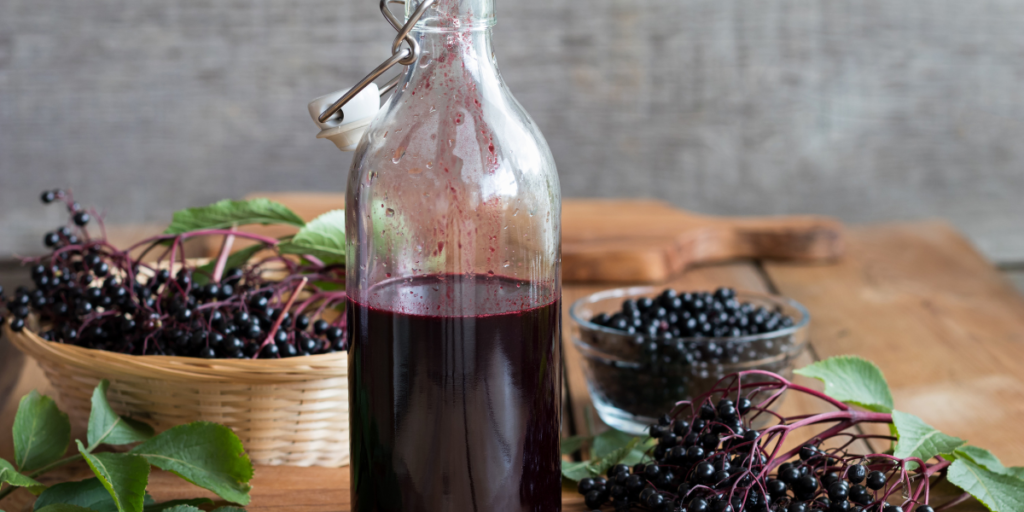
Immune-Boosting Herbs: Guardians of Well-Being
Highlighting immune-boosting herbs like echinacea, elderberry, and astragalus unveils the herbal guardians essential for fortifying overall health and well-being. Echinacea, a stalwart in traditional medicine, is celebrated for its ability to enhance the immune system, aiding in the prevention and recovery from infections. Elderberry, rich in antioxidants, not only bolsters the immune response but also exhibits antiviral properties, particularly beneficial during cold and flu seasons. Astragalus, deeply rooted in Chinese herbalism, acts as an immunomodulator, supporting immune function and promoting vitality. By incorporating these herbal allies, individuals fortify their natural defenses, creating a resilient immune system that stands guard against external threats, ultimately contributing to a robust foundation for overall health and well-being.
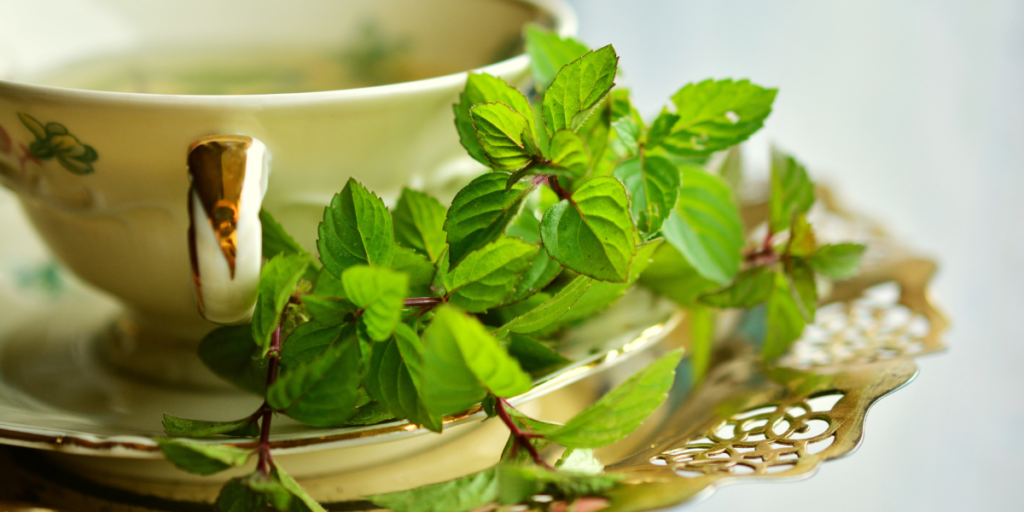
Herbal Remedies for Digestive Health: Nature’s Soothing Elixirs
Embarking on an exploration of herbal remedies for digestive health leads to the discovery of nature’s soothing elixirs—peppermint, ginger, and fennel. Peppermint, with its menthol content, relaxes the muscles of the gastrointestinal tract, alleviating symptoms of indigestion and bloating. Ginger, a versatile herb, aids digestion by stimulating digestive enzymes, easing nausea, and reducing inflammation. Fennel, celebrated for its aromatic seeds, helps soothe the digestive tract, alleviating symptoms of indigestion and promoting overall gastrointestinal wellness. These herbal allies, with their time-tested properties, offer a holistic approach to digestive health, providing gentle and effective solutions to common discomforts. Incorporating these herbs into one’s wellness routine becomes a flavorful journey toward maintaining a harmonious and balanced digestive system.
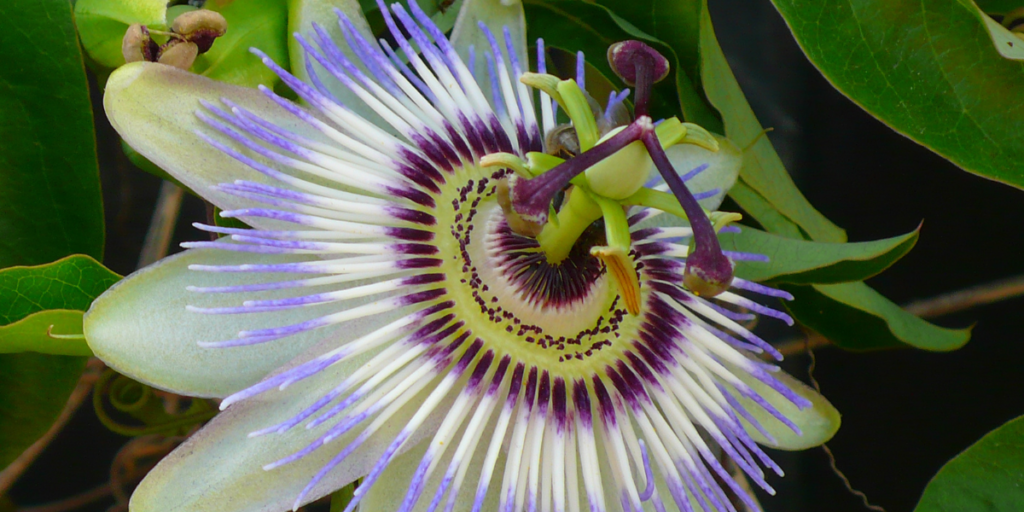
Herbs for Sleep Enhancement: Nature’s Lullabies
Uncovering the calming effects of herbs like valerian, passionflower, and chamomile reveals nature’s lullabies—gentle remedies to promote restful sleep and alleviate insomnia. Valerian, with its sedative properties, has been used for centuries to soothe the nervous system and induce a sense of tranquility conducive to sleep. Passionflower, known for its mild sedative effects, aids in calming the mind and easing restlessness. Chamomile, a beloved bedtime tea, offers relaxation through its mild sedative and anxiolytic properties. By embracing these herbal allies, individuals can create a bedtime ritual infused with the calming essence of nature, fostering a peaceful transition into restful sleep and awakening rejuvenated, attuned to the natural rhythms of a well-rested body and mind.
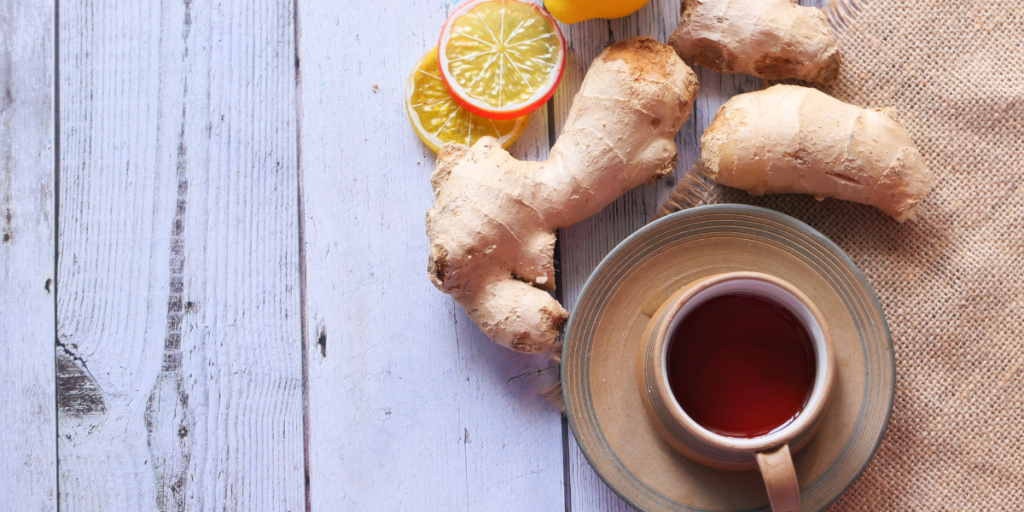
Pain-Relieving Herbs: Nature’s Analgesic Alchemy
Delving into the pain-relieving properties of herbs like turmeric, ginger, and willow bark unveils nature’s analgesic alchemy—providing natural options for managing pain and inflammation. Turmeric, with its active compound curcumin, exhibits potent anti-inflammatory effects, offering relief from chronic pain conditions. Ginger, celebrated for its diverse medicinal properties, demonstrates analgesic and anti-inflammatory actions, making it a valuable herb for pain management. Willow bark, historically used in traditional medicine, contains salicin, a compound akin to aspirin, providing natural pain relief. By incorporating these herbal allies, individuals have the opportunity to harness the therapeutic power of nature, navigating pain with holistic alternatives that not only alleviate discomfort but also contribute to overall well-being.
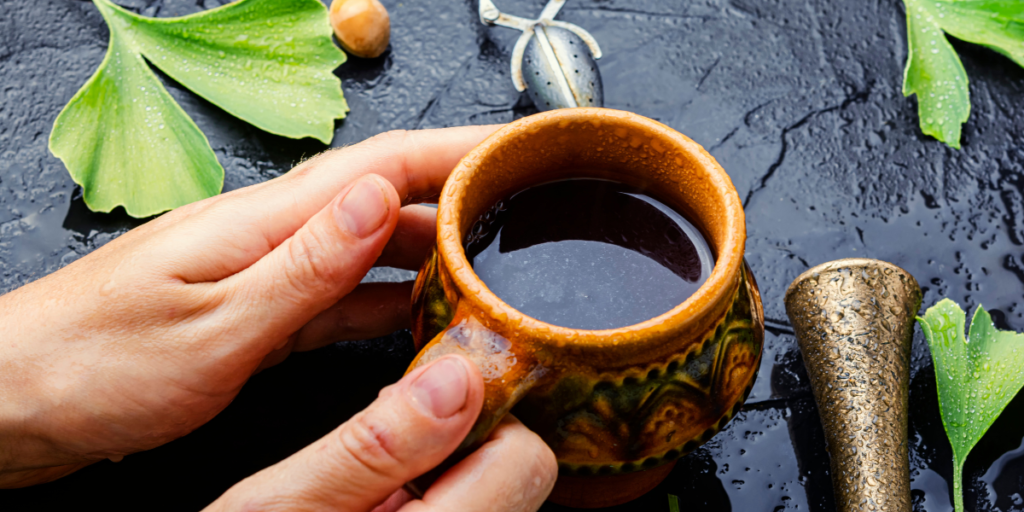
Herbs for Cognitive Function: Nourishing the Mind’s Garden
Exploring herbs like ginkgo biloba, rosemary, and bacopa reveals a garden of botanical wonders recognized for their cognitive-enhancing properties, cultivating mental clarity and focus. Ginkgo biloba, with its antioxidant-rich leaves, supports cerebral blood flow, enhancing memory and cognitive function. Rosemary, a fragrant herb, contains compounds that stimulate neurotransmitters, promoting alertness and mental acuity. Bacopa, rooted in Ayurvedic traditions, exhibits neuroprotective effects, enhancing memory and reducing cognitive decline. By incorporating these herbal allies into daily routines, individuals nourish the mind’s garden, fostering cognitive well-being. These herbs, with their time-honored reputation for supporting mental function, become allies in the journey to maintain a sharp and focused mind, contributing to a vibrant cognitive landscape.
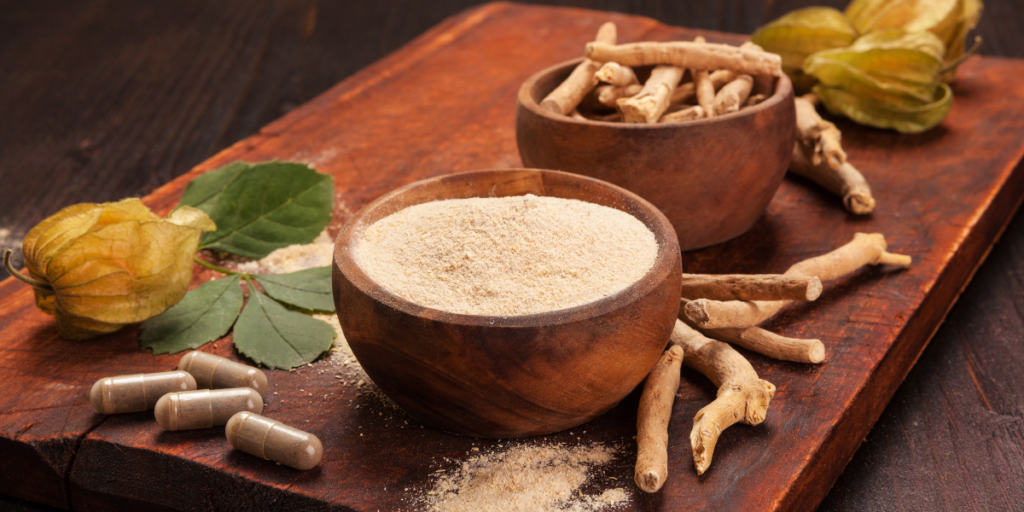
Adaptogenic Herbs: Balancing Nature’s Resilience
Diving into the world of adaptogenic herbs like ashwagandha, rhodiola, and holy basil unveils nature’s resilience, offering a harmonious response to the challenges of stress. Ashwagandha, an Ayurvedic powerhouse, supports the body’s ability to adapt to stressors, promoting overall well-being and vitality. Rhodiola, celebrated in traditional medicine, enhances resilience to physical and mental stress, bolstering the body’s adaptive capacities. Holy basil, revered in Ayurveda as an “elixir of life,” aids in balancing the stress response and promoting emotional well-being. By exploring these adaptogenic allies, individuals cultivate a holistic approach to stress management, fostering resilience and balance in the face of life’s inevitable challenges. Incorporating adaptogenic herbs becomes a pathway to embracing the ebb and flow of life with a grounded and centered spirit.

Herbs for Skin Health: Nature’s Radiant Elixirs
Highlighting herbs like calendula, aloe vera, and tea tree oil unveils nature’s radiant elixirs, renowned for their skin-soothing and healing properties, contributing to overall skin health. Calendula, with its anti-inflammatory and antimicrobial properties, aids in soothing irritated skin, promoting healing and reducing redness. Aloe vera, a succulent with centuries of traditional use, hydrates and nourishes the skin while offering relief from sunburn and irritation. Tea tree oil, celebrated for its antibacterial and antiseptic qualities, becomes a potent ally in addressing acne and promoting clear, healthy skin. By embracing these herbal gems, individuals create a skincare ritual rooted in nature, harnessing the gentle yet powerful essence of these botanical wonders for radiant and revitalized skin.
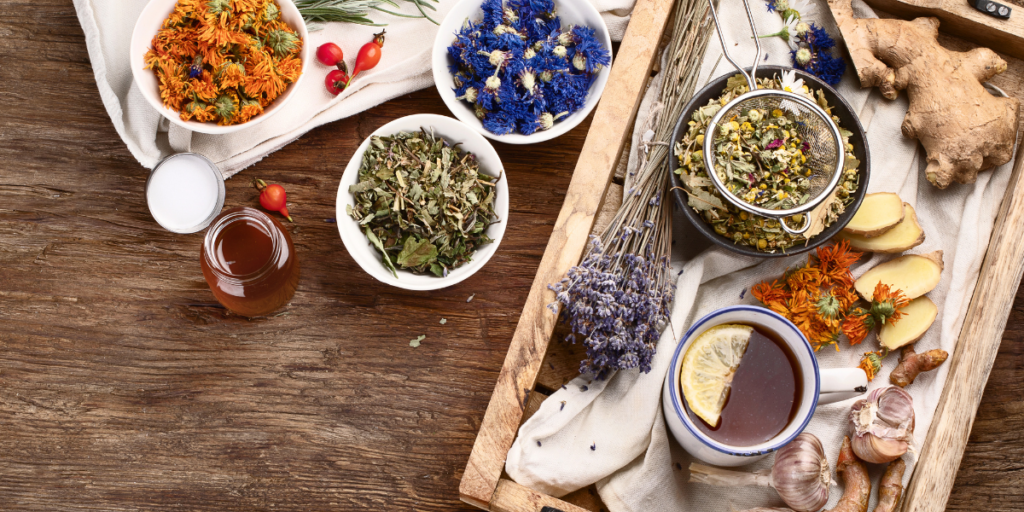
Conclusion: Embracing Nature’s Apothecary
In concluding our journey through the secrets of herbal remedies, we find ourselves in the midst of nature’s apothecary—a treasure trove of botanical wonders that beckon us toward holistic well-being. From stress-relieving chamomile teas to the resilience of adaptogenic herbs, each plant unfolds a unique chapter in the story of natural healing. As we explore the analgesic alchemy of turmeric and the soothing elixirs of calendula, we discover a harmonious integration of herbs into daily life. These herbal allies become more than remedies; they embody a timeless connection between humanity and the healing embrace of the natural world. Let us continue to sip, infuse, and apply these botanical gifts, crafting a daily ritual that honors the ancient wisdom embedded in herbal remedies—a ritual that nurtures our bodies, minds, and spirits with the boundless healing power of nature.

